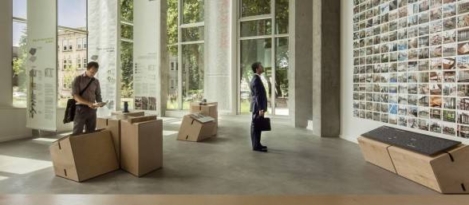May 8, 2015
The death of the office has been overstated but it is changing, study confirms
 The implications for the property industry of more efficient space planning models and the uptake of flexible working are laid bare in a new report from planning and design consultancy Nathaniel, Lichfield and Partners (NLP). The headline figure from the report, Workspace Futures: The changing dynamics of office locations is that the office stock in England and Wales rose by 17 percent in the twelve years to 2012 while the numbers of office based staff increased by around 21 percent. The report includes details on how these trends affect 11 key locations including Manchester, Cambridge, Bristol, Newcastle and Reading and concludes that while ‘the death of the office has been largely overstated’, the market is undergoing structural changes that need to be addressed by developers and government.
The implications for the property industry of more efficient space planning models and the uptake of flexible working are laid bare in a new report from planning and design consultancy Nathaniel, Lichfield and Partners (NLP). The headline figure from the report, Workspace Futures: The changing dynamics of office locations is that the office stock in England and Wales rose by 17 percent in the twelve years to 2012 while the numbers of office based staff increased by around 21 percent. The report includes details on how these trends affect 11 key locations including Manchester, Cambridge, Bristol, Newcastle and Reading and concludes that while ‘the death of the office has been largely overstated’, the market is undergoing structural changes that need to be addressed by developers and government.





























May 11, 2015
Does declining productivity spell the end for IT and property directors?
by John Blackwell • Comment, Facilities management, Property, Technology, Work&Place
More →